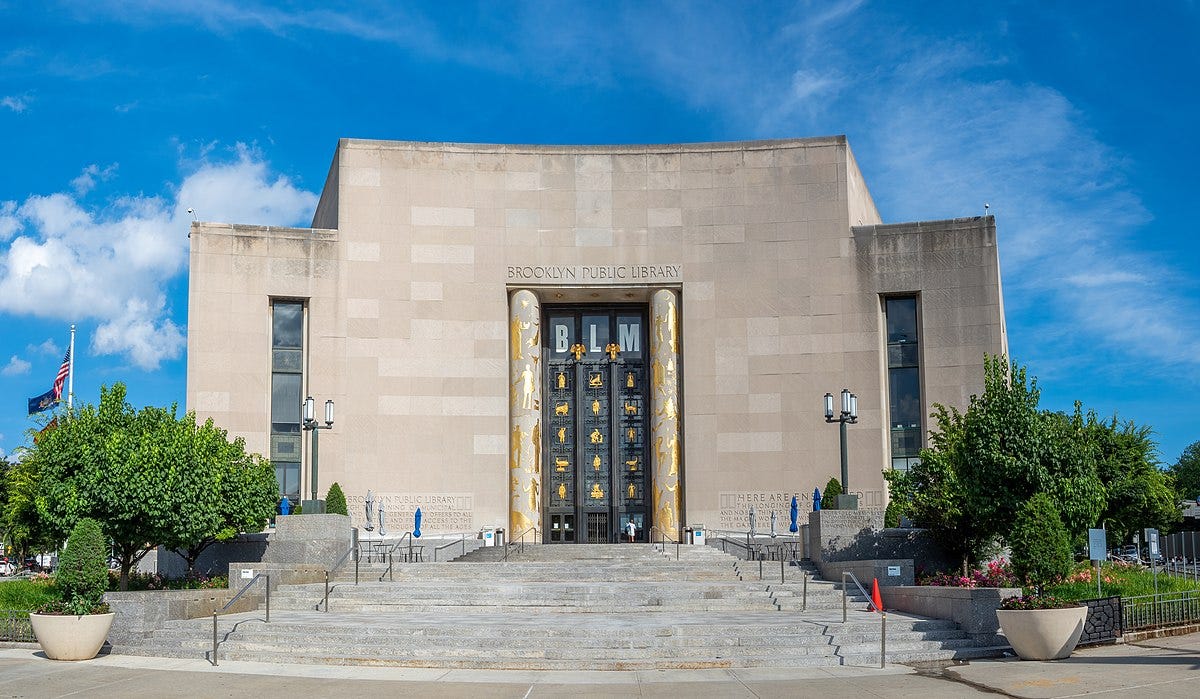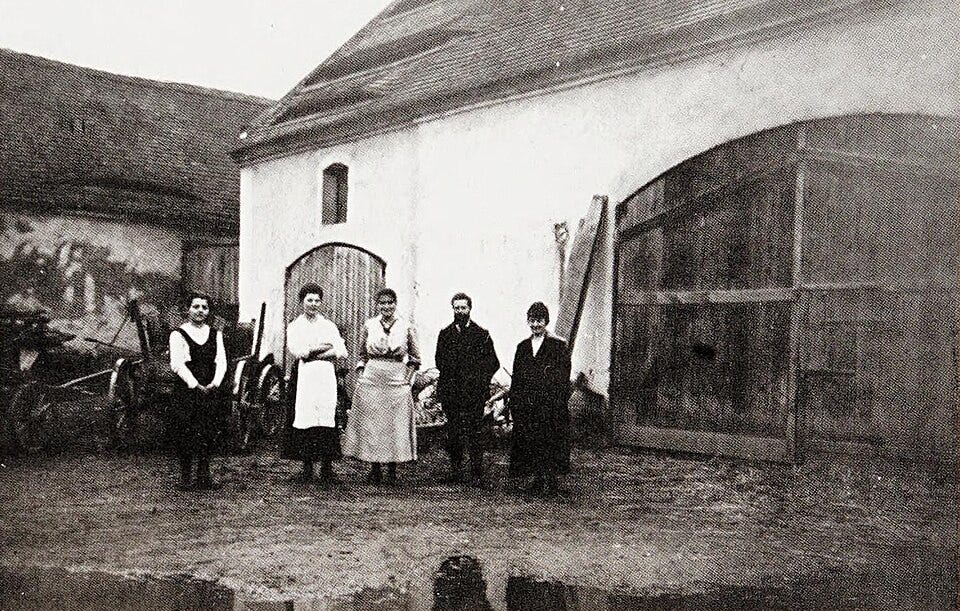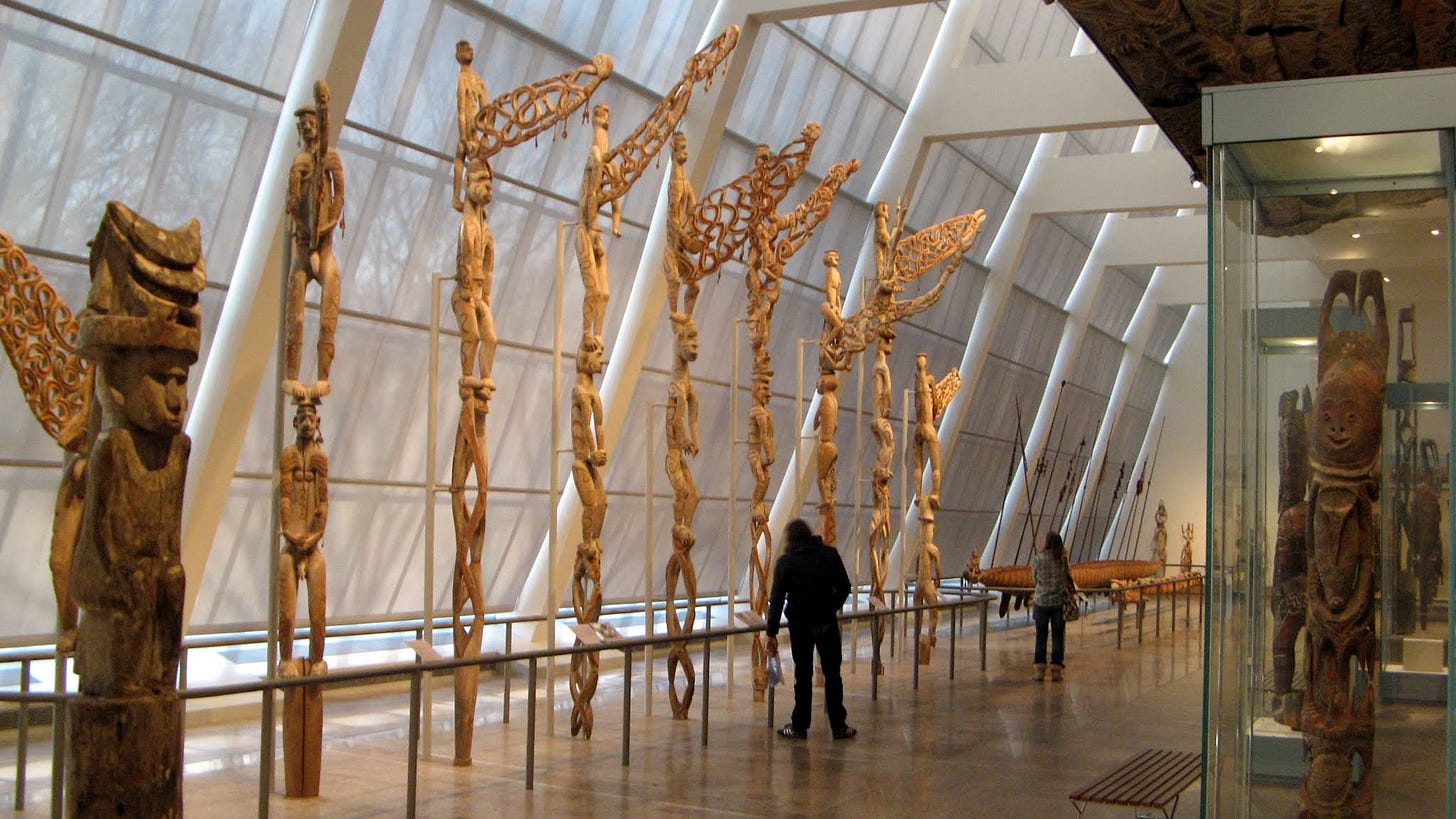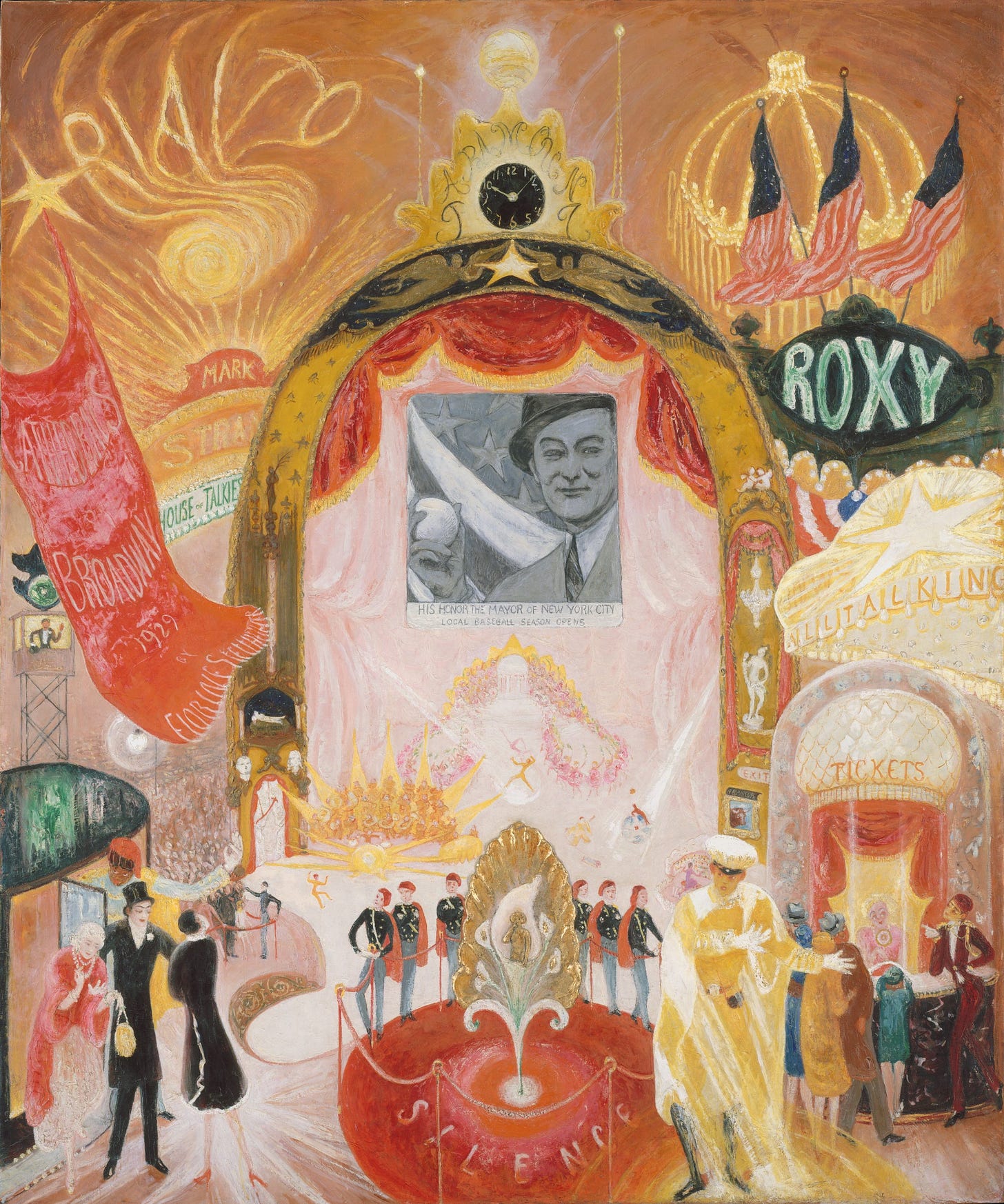
You ever had the sensation in a bookstore or a library of being overwhelmed at the staggering quantity of literature that exists? You’re wandering around, pulling random titles, judging covers, and making mental notes on which ones you’d like to get to eventually, and suddenly, as you look around the sea of texts around you, you notice a dizziness, or even craziness, to be in the midst of so much human creation. Wtf even is our species dawg.
One could spend the majority of her life totally dedicated to reading - the sole aim of life, between meals and sleep, to read as much from the canon, everything between Gilgamesh to Sally Rooney. Myself, I’m not someone who feels an aching hunger to fit in as many books as I can in my little life. I’m always thinking of what to read next, but I’ve accepted that there are books I simply will never get to (and some that I don’t really have an interest in tbh… like Moby-Dick or My Struggle (either versions). The vastness of the ocean of all the printed words isn’t overwhelming because it beckons to be discovered, or because life will be incomplete if I don’t give it my best shot, but because of what it says on an existential level about the desire to convert thoughts into language into text.
Take this essay. It’s a beautiful day out there, Brooklyn shining in late summer glory, with temperate weather covering the city, life swinging to music and conversation in parks, fascinating people bustling about their Saturday grinding or lazing, trees beginning their descent into fall - and I’m in my cramped studio, hacking away at a draft not too many people will read or I myself will be too happy with (it’s how it goes…). There’s an absurdity to think of myself as a writer, and to think that I should be contributing my own grains of sand to that ever-expansive desert of literature. The question rattles me; why????

Still, I feel an urge, one that I often repress in lieu of all the hundreds of things there are to do in a day. Mostly, it’s a matter of time; after work, I don’t particularly want to spend the few hours not pertaining to life upkeep wrestling over sentences and ideas; ultimately, it’s more work. Other pleasures await, and rest is necessary. Yet at some point in my scattered hours, something inevitably brings me to opening up a notebook or my laptop, even if not the kind of grand ambitious writing I’d like to be.
I would never question the need to write - there’s tremendous clarifying value in journaling, an act that that I believe helps make our consciousness experience more cohesive, can provide a spiritual catharsis that not much else can, and even attempting poetry or prose that speaks to something within ourselves is a worthwhile experience. But the need to publish, to be read - now there’s something to reckon with! Writing with the intent to draw an audience, on either end of my few substack subscribers (hello!) or a general population that could pay to read a story or an article, is a totally different ballgame.
If you are writing professionally, that needs to be a bulk of your day. Since I’ve started my new job (an unholy mix of corporate culture and government bureaucracy), my capacity to spend the necessary hours to produce quality, readable work has greatly diminished. And when I say unreadable, I don’t mean that my journaling isn’t comprehensible but that the kind of narrative storytelling or thoughtful engagement with the world I would like to be doing is not what I’m writing most of the time. That kind requires more energy or concentration that I have most days. Franz Kafka was able to work his job as an insurance officer and also dedicate himself to writing, but he didn’t have Reels to send his consciousness into a tailspin. Then again, I’m not trying to be Kafka… Dude wanted to become literature entirely, something that doesn’t appeal in the slightest. Something he said in his diary once, after courting his first fiancée, Felice Bauer:
My job is unbearable to me because it conflicts with my only desire and my only calling, which is literature.... I am nothing but literature and can and want to be nothing else ... Nervous states of the worst sort control me without pause ... A marriage could not change me, just as my job cannot change me.1

Lol it’s starting to seem like i’m defending myself against some invisible foe who is keeping me from writing. I know i know… ‘if i really wanted it, i would make the time’. But that’s the thing, maybe I don’t want it that bad. Between choosing to experience this limited life i’ve been given at the closing of the neoliberal era and to spend my hours alone at a desk crafting language in solitude, I find myself leaning towards experience. Undeniably, for better or worse I feel a nihilism about the state of the world, an uncertainty that my old age will be restful or even come around. There’s too much threatening this way of life, and too much life to be experienced to prioritize writing. At least, I feel that way half the time.
Yesterday, I ventured solo to the met museum with the invented purpose to jot down thoughts and images as they came, using the highlights of art history to inspire creative sparks. But though there was much to consider, it was too overstimulating; i got caught in this whirlpool cycle of writing half-baked thoughts, being distracted by something, split between the two for a moment, before moving onto something else and repeating. Also, I find the new wing rather unnerving, particularly the mythic deities of Papua New Guinean indigenous religions trapped in glass cages, stolen by the Rockefeller scion. It’s a charged atmosphere to be sure… between that and the history of humanity on full display, museum guards following me, getting sucked into modernist paintings, and the endless tugging anxieties of everyday dystopian life, it made for a rather maddening evening.


The question of the ultimate point of writing in the face of calamity is central in Simone de Beauvoir’s 1954 novel The Mandarins, where she examines her social group of Parisian bourgeoise intellectuals at the end of the second world war and the turmoil of their age. She’s an excellent novelist, and though the book is a dry portrait of the lives of French neurotics, it’s psychologically precise and very vivid. Faced with the horrors of WWII and the incoming dread of the Cold War, its characters grapple with the meaningless of everything, in particular what can be accomplished politically through writing. It’s very earnestly angsty, existential to the extreme (ofc), but also strikes a chord that i think resonates in this day and age: weighing all your constraints and your desires, how do you mobilize yourself to meet the moment?
The stand-ins for Camus, Sartre, de Beauvoir herself, and other writers from that period live life searching for something transcendent to swoop in and redeem them, to show them the way to happiness. They fall in and out of love, triumph and fail professionally, debate the ideas of the times in circles, and navigate complex situations, sometimes gracefully and sometimes not.
The novel offers no solutions on how to live, but through the journey of reading The Mandarins you fall under the kind of spell only literature can cast, where you are taken out of your existence, and for a few moments are able to imagine what it must have been like to have been born in a different time with a specific set of circumstances. It has partly spurned me to write this essay, in an attempt to sort out various ideas on the tension between writing and experience.
In my opinion, there was too much neuroticism floating around in those Parisian cafés. We all know that writing can sometimes genuinely impact the world and its details; we’ve all been moved towards action, re-evaluation, or crisis following a particular text; we’ve all had the uncannily sublime experience of reading something and having it perfectly describe an experience we had previously thought uniquely ours. Why should we wrack our brains thinking what the point of it is? Why can’t we just embrace it, and let the feeling guide us?
Easier said than done. As long as capitalism continues to reign and the follies of the powerful persist, I’ll continue to face down nihilism and the luring temptation to give up everything, especially writing, that rather insane, indulgent activity that has the potential to alienate or destroy. At the same time, it seems to me that life is the fruit of the tension between possibility and fate, a balancing act we must see through its entirety. From the ether, images come to us that we must materialize, narratives that we must tell, and new landscapes we are moved to conjure - all we have to do is try, and from an attempt we arrive at a synthesis.
Though we find ourselves at the beginning of a dangerous new era and though absolutely everything is in question at this juncture of modern life, perhaps we can still commandeer the act of writing to bring us closer to revolution, to offer glimpses of our world so that others might use them to bring about a new one, in which we don’t have to wonder why we do anything; we just do.
Thanks for reading! I’ll catch you on the other side.
Wagenbach, Klaus (2019) [2003]. Kafka's Prague (paperback). Armchair Traveller. Translated by Ewald Osers with Peter Lewis. London: Haus Publishing. ISBN 9781909961654.





Your point about the tricky balance between experiencing vs writing resonates. I often find the season influences the particular direction I’m pulled in — I find the summer months more conducive to “living outwards” and the colder months better suited to going inwards. Your essay reminded me of this post by my friend Elliot Cole, in which he grapples with a lot of the same questions you’re asking. I particularly love this one:“How does the range of meaningful feeling I experience at a new music concert (or create for others to experience) stack up against other things I love—say, being outside on a summer night, cooking a big meal for friends, or swimming in a lake?”
https://newmusicusa.org/nmbx/questions-i-ask-myself/
I really enjoy the duality of well-formed sentences and lowercase i's (hello!)